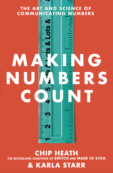If you’d have trouble finding Iran or Afghanistan on a map, check out this sticky 1-minute Middle East geography lesson (courtesy of Kid Ethnic).
Teachers
Help out a teacher, get signed Switch copies
It’s “Help Out a Teacher Day” here at the blog. Here’s the deal for the first 5 people to respond.
Go to DonorsChoose and pick a teacher’s project to support. Donate $100 or more and email me the receipt. To say thanks, I’ll send a “Switch kit” with 5 signed copies of Switch. (It may include audio CDs or hardcovers — my choice depending on what I’ve got on hand.) I can only ship to addresses in the USA.
What you get for your $100: (1) The tax write-off; (2) $130+ worth of Switch goodies; (3) Most importantly, the satisfaction of keeping a poorly-paid teacher from dipping into her own pocket to fund critical classroom supplies!
Please check the blog before you pull the trigger on your donation. I’ll update the post immediately when we hit the fifth donation. UPDATE: This promotion is now over — thanks to those of you who donated!
Watching the game film
Our latest column for Fast Company is online. Here’s the lead:
Football coaches pore over game film to spot things they’d never see in real time. Check it out: When the defense blitzes, the free safety picks up the running back. So by picking off the safety, the middle of the field will be wide open for a screen pass. The value of this meticulous observation is intuitive in the sports world. After all, coaches get a week to review a 60-minute game. In the organizational world, where every day is game day, such analysis is less common. It’s unfortunate because studying the game film can yield unexpected insights. … [read more]
The power of clarity in creating change
What looks like resistance is often a lack of clarity. Change accelerates when people understand — in specific, behavioral terms — how to reach their goals.
This theme emerged in some educational research cited by Amanda Ripley in her new Time piece called, “Should kids be bribed to do well in school?” The most successful “bribe” programs rewarded behaviors rather than grades. At first look, that seems odd. Why reward an “input” rather than the “output”? Well, here’s why:
The students [in New York City] were universally excited about the money, and they wanted to earn more. They just didn’t seem to know how. When researchers asked them how they could raise their scores, the kids mentioned test-taking strategies like reading the questions more carefully. But they didn’t talk about the substantive work that leads to learning. “No one said they were going to stay after class and talk to the teacher,” Fryer says. “Not one.”
We tend to assume that kids (and adults) know how to achieve success. If they don’t get there, it’s for lack of effort — or talent. Sometimes that’s true. But a lot of the time, people are just flying blind. John List, an economist at the University of Chicago, has noticed the disconnect in his own education experiments. He explains the problem to me this way: “I could ask you to solve a third-order linear partial differential equation,” he says. “A what?” I ask. “A third-order linear partial differential equation,” he says. “I could offer you a million dollars to solve it. And you can’t do it.” (He’s right. I can’t.) For some kids, doing better on a geometry test is like solving a third-order linear partial differential equation, no matter the incentive.
Situation problems vs. people problems
In Switch, we point out that what looks like a “people problem” is often a “situation problem.” Here’s a great story from a 3rd-grader teacher who came to that conclusion when he noticed that another teacher’s students were doing a better job getting their assignments in on time…



